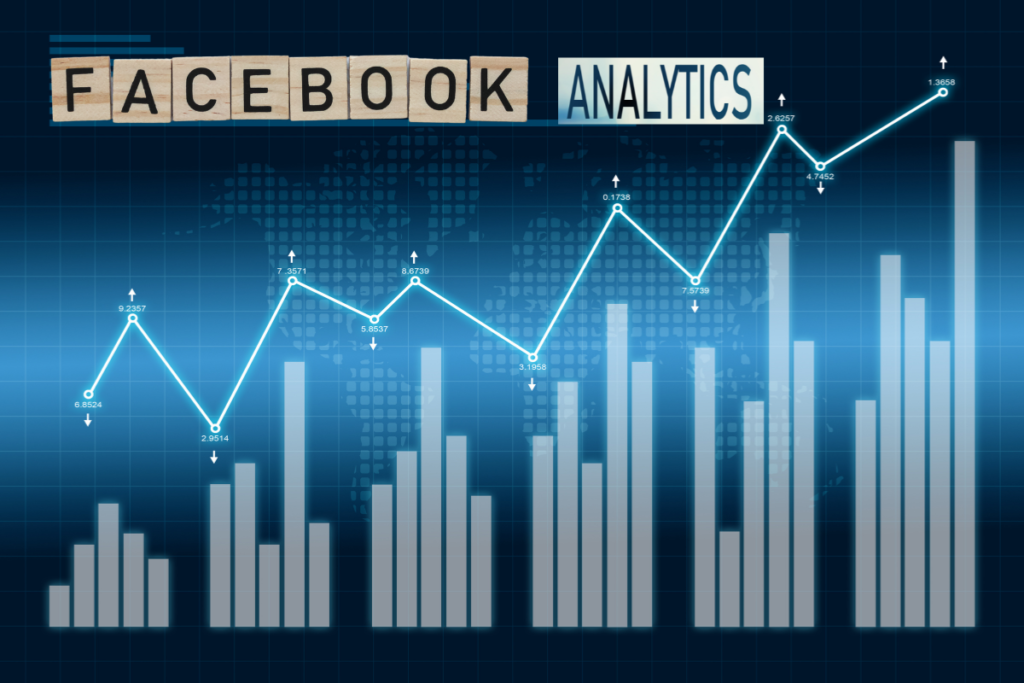
Introduction
When it comes to harnessing the power of social media, Facebook analytics is an essential tool. It provides invaluable insights into the performance of your Facebook page and enables you to make data-driven decisions for your marketing strategy. By understanding how users engage with your content, demographics, and trends, you can optimize your reach and increase conversions.
One of the key features of Facebook analytics is its ability to track user interactions. You can measure likes, comments, shares, and clicks on your posts to determine which content resonates most with your audience. This information allows you to tailor your future content to their preferences and interests.
Setting up Facebook Analytics
- Create a Facebook Business Manager account.
- Go to the Business Settings tab and select Data Sources.
- Tap “Facebook Pixel” to include an additional data source.
- Install the pixel code on your website by placing it in the HTML header tags.
- Set up event tracking by adding code to specific pages or actions on your website.
- Make use of Facebook’s Pixel Helper browser plugin to test the installation of pixels.
To make the most out of Facebook analytics,
here are some suggestions that work wonders:
- Regularly monitor your data – Keep a close eye on key metrics such as reach, engagement, and conversions to identify trends and areas for improvement.
- Segment your audience – Use demographics, interests, or behaviour data to create custom audience segments for more targeted marketing efforts.
- A/B test your ads – Experiment with different ad formats, visuals, headlines, and CTAs to find what works best for your audience.
- Analyze referral traffic – Understand which channels are driving traffic to your website and leverage that information to optimize your overall marketing strategy.
Navigating the Facebook analytics dashboard
The Facebook analytics dashboard allows users to gain valuable insights into their social media performance.
Here are some key points to help you navigate this powerful tool:
- Analyze your audience: Discover the demographics of your Facebook followers, including age, gender, and location. This information can help tailor your content to better engage your target audience.
- Track engagement metrics: Monitor likes, comments, shares, and reactions on your posts to understand which content resonates most with your followers. Use this data to refine your social media strategy and drive higher engagement.
- Measure reach and impressions: Gain an understanding of how many people are seeing your posts and how often they are being displayed in their newsfeeds. This data will enable you to assess the overall visibility of your Facebook page.
- Explore referral traffic: Identify which external sources are driving the most traffic to your Facebook page. This can help you identify effective marketing channels and focus your efforts where they will have the greatest impact.
Using Facebook analytics for decision-making
Metric Analysis: Through Facebook, marketers can access various metrics such as reach, engagement, and conversions. By closely analyzing these metrics, businesses can gain insights into their audience’s preferences and behaviour patterns. This information allows them to tailor their content strategy and target specific demographics more effectively.
Campaign Evaluation: Facebook provides in-depth insights into the performance of individual campaigns. Marketers can track the success of different ad sets, identify high-performing content formats, and determine the most effective call-to-action strategies. This analysis enables businesses to make data-driven decisions when allocating resources and optimizing future campaigns.
Competitive Benchmarking: Another valuable feature of Facebook is competitive benchmarking. By comparing key performance metrics with industry competitors, businesses can identify areas where they are falling behind or excelling. This information empowers them to adjust their marketing tactics accordingly, keeping up with trends and staying ahead of the competition.
Suggestions for Utilizing Facebook Analytics:
- Set Clear Goals: Before diving into analytics data, it’s crucial to define clear goals that align with your business objectives. Having well-defined goals will help you focus on relevant metrics and make meaningful decisions based on the insights gained.
- Utilize Custom Reports: Custom reports in Facebook allow you to track specific metrics tailored to your business needs. By creating customized reports that highlight key performance indicators (KPIs), you can easily access the most relevant data and track progress towards your goals.
- Regularly Monitor Performance: It’s essential to consistently monitor your campaign performance through Facebook. By keeping a close eye on metrics, you can quickly identify shifts in audience behaviour or campaign effectiveness and make timely adjustments to optimize results.
Best practices for effective use of Facebook analytics
Analytics is key to the effective use of Facebook. Use the following best practices for maximum impact:
- Set specific goals for your analytics.
- Regularly analyze data to identify patterns and trends.
- Use custom conversion tracking to measure success.
- Utilize segmentation to target specific audiences.
To further enhance your Facebook analytics, consider these unique details:
- Monitor user engagement through metrics like comments and shares.
- Track the performance of your Facebook ads by linking them with your analytics.
- Conduct A/B testing to evaluate the relative efficacy of various tactics.
- Analyze the demographics of your audience to tailor content accordingly.
Conclusion and future trends in Facebook Analytics
The world of Facebook analytics is ever-evolving, paving the way for exciting future trends. It is crucial for businesses to stay ahead by leveraging these advancements. One significant trend on the horizon is the integration of artificial intelligence and machine learning algorithms in analytics tools. This revolutionary approach will enable businesses to gain deeper insights into user behaviour and preferences, allowing them to tailor their marketing strategies effectively. You can visit upskillrocket.in to know more.
Frequently Asked Questions
To access Facebook Analytics, log into your Facebook account and go to the Facebook Analytics page.
You can track page likes, reach, engagement and demographics of your audience, and even analyze user behaviour on your website if you have integrated Facebook Pixel.
Analyze post reach, engagement and comments to determine what works well and replicate those strategies. Additionally, you can use the demographic data to target specific audiences and create more tailored content.
Yes, Facebook analytics allows you to track the performance of your Facebook ads. You can monitor metrics such as ad reach, impressions, clicks, conversions, and cost per result.
No, Facebook analytics is not available for personal profiles. It is primarily designed for business pages, brands and website owners who want to understand their audience and improve their performance on Facebook.
